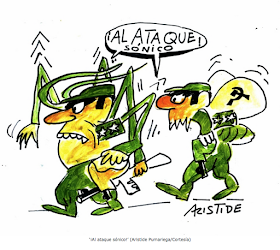(Pix © Larry Catá Backer 2017)
Those interested in the state of relations between the United States and Cuba have been awaiting the issuance of the modifications to the regulations that implement the ancient U.S. trade embargo ever since President Trump announced a change in direction of U.S.-Cuba relations int he Spring (e.g.,
here,
here,
here, and
here).
Where once the entire focus of these changes were on a "better deal" compatible with the foreign trade and relations theme of the early Trump Administration (e.g.,
Remarks by the President on the Policy of the United States Toward Cuba (delivered in Miami June 16th)), those objectives have been flavored now by the Affair of the Sonic Weapons Attack. It appears that Cuba remains a special case, one where the economic interests of the United States may play a secondary role--or better put in today's terms, one in which the "better deal" produces a marketplace in the the United States is willing to barter economics for politic objectives. That may or may not be error--only time will tell. But it does represent the continuation of our quite singular relations with this state.
They have now been released. The new regulations do not entirely roll back the state of relations (or travel-investment), they point to a return to the status quo of the turn of the century, refined by much more specific targeting of persons and institutions of Cuba. That targeting goes to the core of the Cuban 2030 Development plan's focus on tourism (and less so on infrastructure and pharma). There is irony here, this technique, refined and used well against the Russians and others by the Obama administration, continues to be expanded as a tool of U.S. foreign policy in the era of the "better deal." Of course, the Devil is in the detail. There are some potentially substantial loopholes for U.S: travelers and investors, and some invitations toward creative enterprise organization for Cuba. There is much work for lawyers here and likely some creativity in opening loopholes wider on one side and in (after the fact) loophole closing by the government. Intermediaries (lawyers, accountants, etc.) are likely to be the greatest beneficiaries of these rules.
The new regulations adhere closely to Executive Order directing their creation (
National Security Presidential Memorandum 5; Strengthening the Policy of the United States Toward Cuba (
NSPM 5 in Federal Register) (June 16, 2017)). Below please find first the Department of the Treasury's summary of major elements of the changes, second, the BIS regulations, and third, the much longer OFAC Regulations.
Downloading: For the Treasury regulations, which can be found at 31 Code of Federal Regulations (CFR) part 515, see
here. For the Commerce regulations, which can be found at 15 CFR parts 730-774, see
here. For the State Department list, which can be found on the State Department website and in the Federal Register, see
here.
























